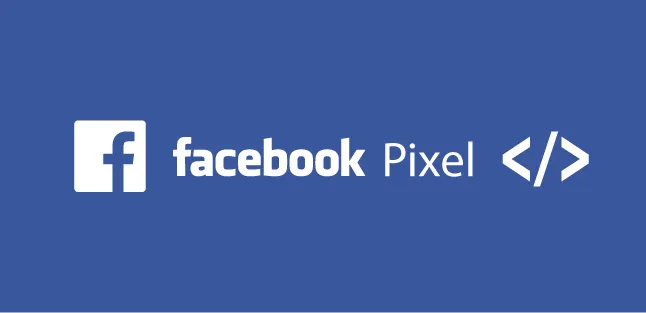Affiliate Marketing
9 Mistakes Beginner Affiliates Make When Working with Facebook
When commencing your Facebook venture, it’s common for affiliate marketers to encounter pitfalls that can have a substantial impact on...
Dec 18, 2023
When commencing your Facebook venture, it’s common for affiliate marketers to encounter pitfalls that can have a substantial impact on their results and lead to unnecessary expenses. If you’re new to affiliate marketing and seeking to safeguard yourself from these typical mistakes, this article will provide valuable insights to help you navigate the challenges ahead.
Mistake 1. Not masking your digital fingerprint
Every time a device connects to a network, it transmits a set of data and parameters to the visited websites, including information about the device itself, browser, internet connection, and location. This collection of data forms a digital fingerprint, which websites use for various purposes, such as identifying users, customizing ad impressions, and preventing fraud.
Affiliate marketers often need to modify their digital fingerprints in certain situations, such as when working with multiple accounts simultaneously, promoting offers that may violate Facebook’s rules, or managing foreign accounts. It is important to change the digital fingerprint without completely hiding the data, as Facebook algorithms rely on user actions for analysis and identification purposes. To modify your digital fingerprint, you can utilize proxy services to replace your IP address with that of a proxy server, internet service provider (ISP), mobile operator, or another real user. However, proxies alone cannot alter browser and device data, so it is advisable to use them in conjunction with an anti-detect browser.
Anti-detect browsers are specialized programs designed to modify the digital fingerprint of your browser and device. They function similarly to regular browsers but allow you to configure fingerprint data for each individual account within separate tabs. While high-quality anti-detect browsers can effectively mask digital fingerprints, they often come at a cost, with prices starting at $89. However, there are also some cost-effective options available, such as Nstbrowser, which is currently handle all features and have cheapest price.
As part of the economy, some beginner affiliates change their device data manually. However, this takes a lot of time, and the affiliate may not take into account a number of criteria. Because of this, Facebook algorithms will see who really stands behind the account and may become suspicious.
Mistake 2. The same data in different accounts
Sometimes affiliates use the same data in different accounts. For example, they link one payment card to several accounts at the same time.
The thing is that if different profiles or advertising accounts have the same data, Facebook automatically connects those accounts. If in the future the social network has questions about one of the accounts, for example, if it doesn’t like the ad or the account activity seems suspicious, it may block all the accounts at once.
Considering that Facebook is known for its frequent blocking for no obvious reason, even if you work only with authorized ads and do not violate the social network’s requirements in any way, it does not guarantee 100% protection from bans.
With this in mind, it is important that the data in each account must be unique: unique payment card, email, phone number, etc.
Mistake 3. Trying to work with different countries at the same time

All countries are divided into three groups, depending on the purchasing power of the population — how financially well-off the people of a particular country are:
- Tier 1 — countries with high purchasing power. This group includes the countries of Western Europe, Canada, Australia, the USA, South Korea, and other countries with high living standards. In these countries, there is high competition for traffic, due to which advertising is more expensive.
- Tier 2 — countries with average purchasing power, such as Greece, Brazil, Belarus, China, Argentina, Ukraine, Russia, and other countries. The income of the population is lower here, so advertising is cheaper.
- Tier 3 — countries with low purchasing power, such as Libya, Kuwait, Madagascar, Cuba, and Cambodia. In these countries, people have low incomes, so advertising is cheap.-
Despite the obvious benefits of working with Tier 1 countries, it is very rare for beginner affiliates to quickly start earning from this traffic. Moreover, it requires a larger budget to get started, which may not be suitable for all affiliates.
It is better to start from your country or Tier 2 countries: there are moderate rates and competition.
Mistake 4. Working with unknown countries
Trying to earn more, affiliates straight away try working with:
- foreign traffic,
- various unknown countries (geo).
With few exceptions, it does not give good results, so the affiliate just loses all his budget.
This is due to the fact that although people have common patterns of behavior, the population of each country has its own characteristics of mentality, requests in terms of purchases, ethical standards, etc. Because of this, what works for Italy, does not necessarily work in the United States. And that’s not to mention ignorance of the language, slang, and its subtleties.
It is better to start with countries, that the affiliate knows. For example, if he is from Italy, first learn exactly how to attract Italian traffic.
Mistake 5. Not using the Facebook Pixel

The Facebook Pixel captures users who visit the site and their actions. This data can then be used to:
- evaluate the effectiveness of ads and the site itself,
- determine its target audience,
- better adjust advertising campaigns,
- optimize costs,
- set up retargeting,
- find new customers through the formation of similar audiences,
etc.
Given the capabilities of the pixel, not using it limits the effectiveness of Facebook ads.
Mistake 6: Blindly Emulating Other Affiliates’ Practices
New affiliates often lack experience and attempt to imitate or replicate the advertising strategies of others. However, outright copying frequently yields limited and insignificant results or, worse, financial losses. Experienced affiliates share successful campaigns, but these campaigns may no longer be effective when replicated. As in any field, keen observation is crucial. Learning from the experiences and mistakes of other affiliates can inspire better ideas and more innovative ad creatives. It’s advisable to study others’ work, identify successful techniques, and incorporate them into unique ad bundles.
Mistake 7: Solely Relying on Unique Offers for Earnings
Some novice affiliates opt for unconventional offers, hoping that minimal competition will lead to higher earnings. Unfortunately, this often results in budget loss because these offers might not be unpopular due to lack of awareness; rather, other affiliates may have already tested them and found them ineffective on platforms like Facebook. For instance, the offer might target an extremely narrow audience or the product may simply not interest users.
Mistake 8: Launching High-Budget Ad Campaigns Prematurely
In a rush to recoup expenses quickly, novice affiliates sometimes initiate high-budget ad campaigns without:
- conducting trial runs on smaller budgets,
- analyzing the target audience,
- testing various creatives.
This hasty approach often leads to wasted resources. Before allocating a substantial budget, experienced affiliates conduct creative tests to:
- assess which creatives yield the best results,
- fine-tune displays and rates,
- define the target audience.
This strategic testing phase helps optimize the ad campaign for a larger budget in the future.
Mistake 9: Mishandling the Target Audience

Novice affiliates frequently make mistakes when dealing with the target audience. Examples include:
- Failing to analyze the target audience comprehensively. Beyond basic criteria like gender, age, location, and income, factors such as audience activity times, offer seasonality, and interests are crucial.
- Selecting overlapping audiences. Displaying different ads for the same audience can result in additional costs, as the same individuals are targeted twice. To avoid this, it’s essential to ensure that audience overlap doesn’t exceed 20%, a metric that can be checked in Business Manager under Group Ads, Inspector, and Audience Overlap.
If you have extensive experience with Facebook, please share in the comments any mistakes you encountered when starting out.
More




